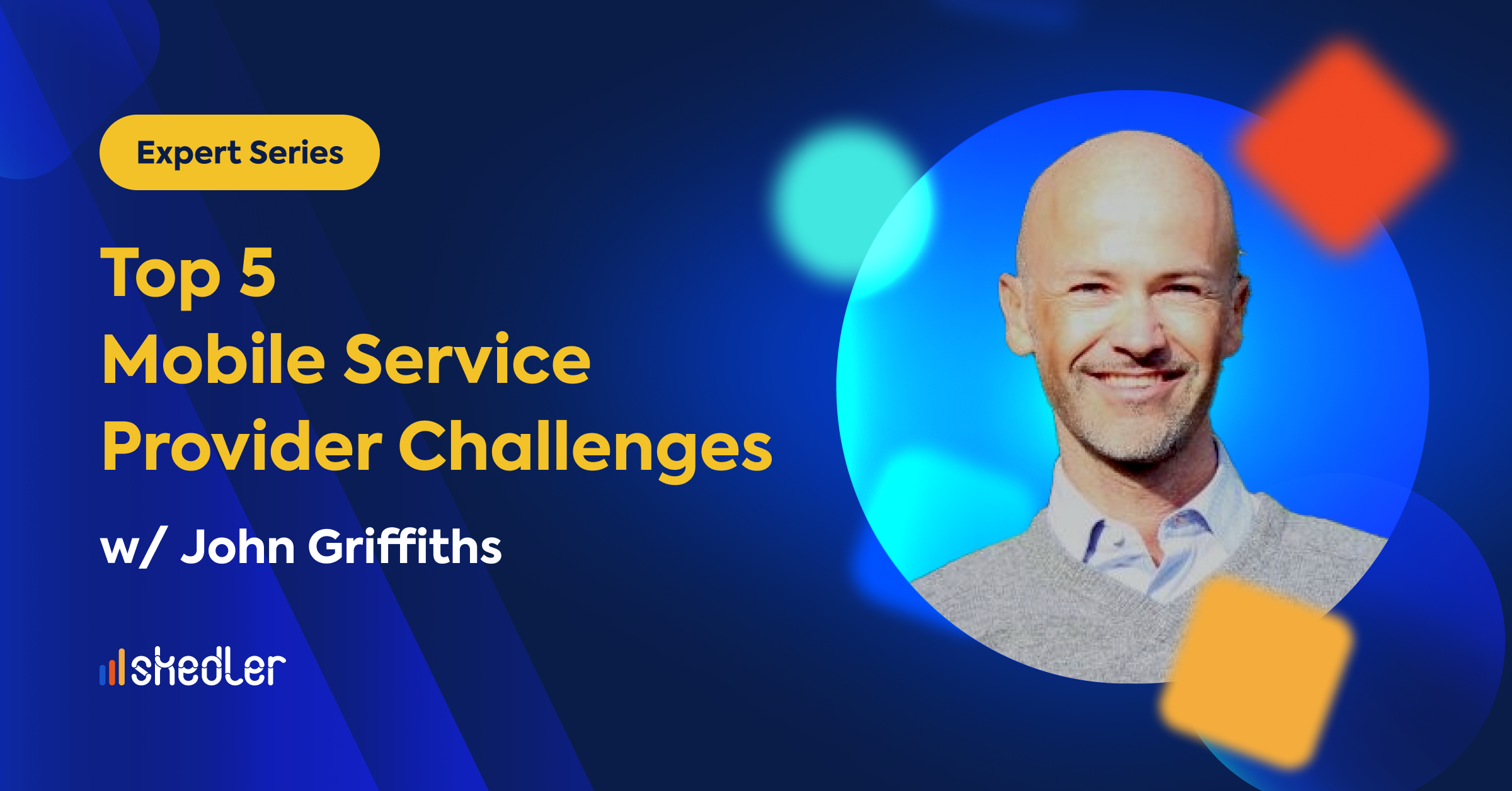Expert Series | Top 5 Mobile Service Provider Challenges
In episode 9 of Infralytics, Shankar spoke with John Griffiths. John is the Senior Product Manager for Openmind Networks, a leading provider of messaging infrastructure for mobile service operators and intercarriers. The subject of discussion was the “Top 5 challenges for Mobile Service Providers today and how to tackle them with devops and analytics.”
Mobile Service Providers: The Interview
Telcos are planning for the 5G rollout and there are huge expectations among consumers and businesses regarding how 5G could transform and improve connectivity. Meeting such expectations is never easy. What are the top challenges faced by mobile service providers today?
Due to increased competition in the mobile sector in general and due to government regulation, operators are having to deal with decreasing revenues and shrinking margins for the same services. They have to do this in the face of usual challenges of the need to upgrade the network and invest with their network.
5G is the latest technology that requires serious investment. Also mobile operators are not just competing among themselves anymore. New competitors are entering the space and offering over the top services. The risk in this type of climate of mobile operators being marginalized, with the worst case scenario being if they just become providers of data bandwidth over which messaging and streaming services could be carried. It’s a huge challenge for operators to stay relevant.
How are mobile service providers addressing these challenges around competition?
The more cutting edge operators have realized that to survive in this environment with the disruptive innovations that keep happening, they have to create a slim and efficient network. Mobile operators can gain efficiencies by reducing and optimizing their hardware footprint. This is done through Network Function Virtualization (NFV) which is the mobile sectors preferred system for maximizing efficiency. NFV architecture enables operators to plan for tomorrow’s systems and applications through hardware that can run multiple applications simultaneously.
Another way mobile service providers are addressing these challenges is by becoming more IT centric. Network technologies are being reworked and moved into an IT centric and software driven environment. IT and Internet companies are much farther ahead than mobile operators as far as this process goes, and they have employed devops, continuous integrations, and continuous delivery enabled through automation and optimization of services. The most cutting edge mobile operators are beginning to learn from these IT and internet companies, and they are adopting these new techniques. DevOps involves releasing small incremental improvements weekly or monthly, so the cutting edge operators have done away with large upgrade projects.
DevOps also enables automated testing. Manual testing is replaced by automated testing. In addition to these efficiencies, DevOps is also adding value.
Have you seen adoption of container technologies by Mobile Service providers or is it too early?
Leading mobile operators are beginning to adopt container technologies. For example, Openmind’s new platform is based on containers and it’s docker based. The advantage of containers is that it enables us to deploy in any environment. It’s also very devops friendly. So containerization makes everything smooth and easy from a mobile operator perspective.
There used to be a lot of testing for a major release but with automated testing you can immediately run testing whenever there is any small change.
Are Telcos implementing any monitoring tools since changes are so frequent?
At Openmind we provide all of the software updates, testing services, and monitoring to the operators.
In terms of going from 4G LTE to 5G, are there more endpoints that they need to monitor?
Yes there are always a huge number of updates and software rollouts on the network with any new technology. From a messaging perspective, it’s yet to be determined whether the architecture will change in 5G.
I read about the RCS that is being adopted by all of the hardware vendors and Telcos. Any thoughts on that?
RCS has been promised as a great hope for a number of years, and Openmind is the first messaging vendor to have a GSMA accredited RCS product but despite this the industry pickup hasn’t been as great as what was hoped for many years. Even after Google came on board, the adaptation hasn’t been as great as many hoped it would be.
How is analytics being used to address the various challenges you mentioned?
With the new generation of messaging products, Big Data and Analytics are part of the products themselves. These services can be customized as customer based services and AI services. Mobile operators have valuable data that can be used by enterprises to communicate more effectively with their customers. This new generation of products is incorporating this customer data into the products themselves.
Big Data is also aiding the messaging space in artificial intelligence. The latest developments in machine learning and neural networks are now being applied to message categorization based on the content in the message. Mobile operators can then use this classification and categorization to make intelligent routing decisions about where to route different types of messages. This enables them to offer different levels of services and charge different rates for the different levels.
As far as security is concerned, if you can categorize messages into spam and/or fraudulent you can block these types of messages.
Is the concept of sending targeted messages to different demographics in the form of ads similar to what Google and Facebook are already doing with their ad businesses something that we are heading towards in the messaging space?
Yes. The categorization is really about targeting the messages and campaigns. It involves offering services to enterprises by making use of the knowledge you have about the consumers themselves. For example if you know that certain subscribers are roaming in a certain location because you can detect that, and they are in a shopping mall, it’s a possibility to send a campaign to this targeted group rather than spamming the whole group of subscribers. So using real-time data and customer profiling to target messages and campaigns.
So at Openmind are you using your own stack or what do you use to offer these analytics capabilities?
Some operators have their own analytics systems, but for customers that want a messaging system plus analytics capabilities as well we base our products on what Elasticsearch and Kibana are offering and we have built on top of that. One of the aspects that we have put on top of the standard Kibana is the Skedler Reporting Tool for sending scheduled reports to people who don’t need to access the analytics systems themselves…that just need a regular report being sent to them.
Conclusion
What are your thoughts on the revelation that mobile service providers can send targeted messages based on real-time data collected and customer profiling similar to how companies like Facebook and Google use data to target ads?
Openmind uses the Skedler reporting tool to send scheduled reports to their Telco customers. Are you interested in trying Skedler reports or Skedler alerts for your business? Start your free trial today!



